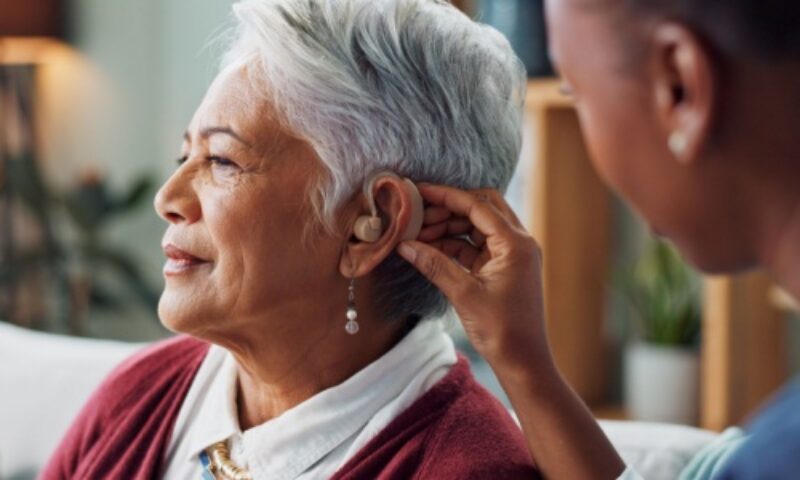People often speak about taking steps to improve or maintain their health as they age. But there’s one important aspect that often gets overlooked – your hearing.
Hearing often naturally deteriorates as you age. Indeed, according to May 2024 data from the National Institute for Health and Care Excellence (NICE), hearing loss affects 41.7% of people over 50 in the UK. This rises to 71.1% among those aged over 70.
With an ageing population, it’s estimated that by 2035, more than 15.6 million people in the UK — around one-fifth of the population — will be affected by hearing loss.
While people often assume you need to turn the volume up for people with hearing loss, the reality is usually more complex. People often lose the ability to hear frequencies at different rates, which can make sounds distorted rather than simply quieter.
While hearing loss might be a part of ageing, there are steps you can take to protect your hearing health. With hearing playing such an important role in how you interact with the world, making changes could enhance your wellbeing later in life.
Research reported by the Guardian in July 2025 also suggests that hearing loss could be linked to cognitive decline. The study examined the potential link between hearing loss and dementia, with results suggesting that treating hearing loss may delay the onset of dementia in some older adults.
While further research is needed, one theory for this link is that hearing loss can lead to social isolation, which may place greater strain on the brain and affect memory. Another potential reason is that auditory signals stimulate the brain, and a lack of this stimulation can lead to accelerated brain atrophy.
Some factors that contribute to hearing loss, such as genetics, aren’t things you can change. Yet, there are steps you can take that might improve your hearing health.
5 practical tips that could protect your hearing health
Don’t wait until you’re experiencing hearing problems to make changes. Small adjustments to your daily routine could make a real difference to your hearing ability over the long term.
Here are five practical steps you could take.
1. Reduce your exposure to loud sounds
Perhaps the most straightforward step to protecting your hearing health is to reduce your exposure to loud sounds. There are sounds you can’t control or avoid, but turning down the volume on your headphones or electronic devices could make a difference.
2. Have some custom ear moulds made
If you often wear headphones, consider getting some custom ear moulds made. They are usually made from silicon or plastic using a digital 3D scan or a physical impression of your ear. As a result, they will precisely fit the contours of your ear.
Not only are they more comfortable, but they will also block out noise better and offer improved sound quality. As a result, you could turn down the volume without compromising your experience.
3. Use ear protection for loud activities
When you’re engaging in loud activities, such as attending a concert or using power tools, use ear protection. These could be ear defenders or more discreet earplugs.
4. Take a noise break
If you often have music, an audiobook or other form of audio in the background when you go about your day, make time for silence each day. Giving your ears a rest could be beneficial, and you might find the quiet relaxing once you get used to it.
5. Book an appointment with an audiologist
If you’re worried about hearing loss, seeking professional advice can feel daunting, and it’s common to delay making an appointment. However, booking regular hearing tests and seeing an audiologist as soon as you notice a decline could be valuable.
There are technologies available today, such as modern hearing aids, that may help you regain some of your hearing ability.

